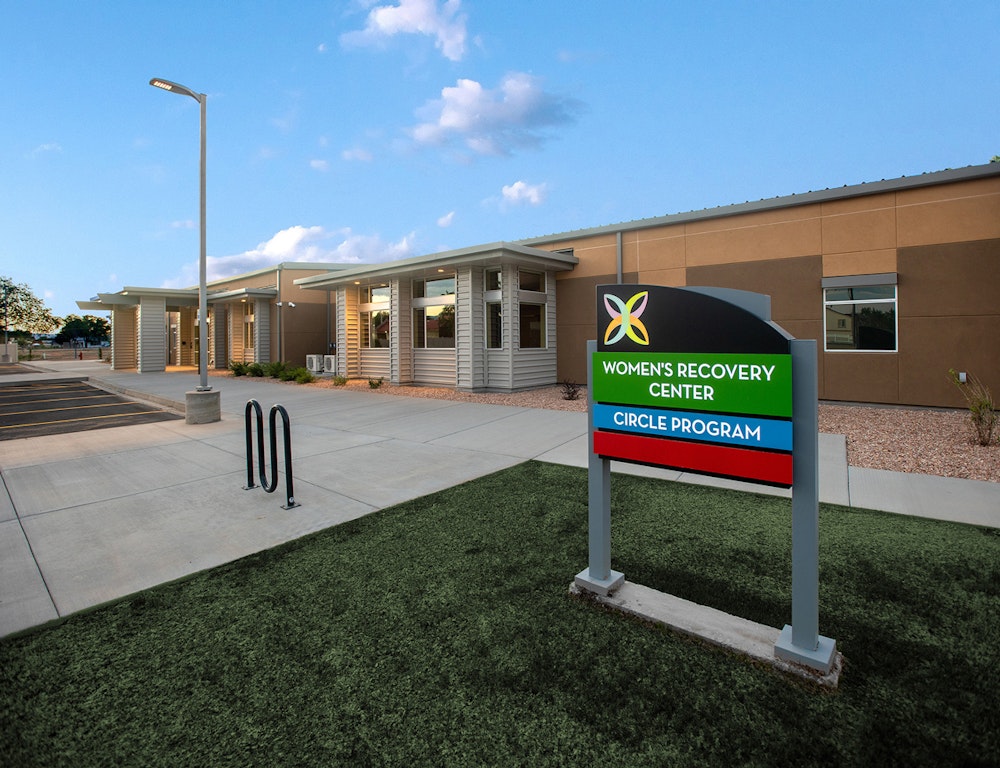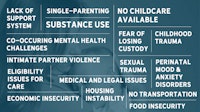
An Interview with Dan Weller, MS, LAC,Program Director,
Women’s Recovery Center at Mind Springs Health
Dan Weller and his team at Mind Spring Health’s Women’s Recovery Center (WRC) on the Western Slope make life-changing, life-saving connections every day. From staying in touch with patients for two years after they leave WRC’s inpatient care, to matching patients to a multitude of community partners for everything from housing to childcare, WRC creates a continuum of care for moms recovering from substance abuse disorder.
“Our program is based on the philosophy of tailoring services specifically to women who are pregnant or have dependent children,” Weller explained. “But what makes us especially unique is that moms can bring their children up to 12 years of age with them to treatment. While most patients have newborns or infants, it is rare to have a program like ours that lets moms bring older children.”
“The truth is, there simply aren’t enough services available to this population,” Weller said. “We care for women who don’t have the means for private treatment or don’t have private insurance.”
AT WRC, gender responsive and specialized services are based on holistic health – treating mind, body and spirit. “We operate from the premise that addiction is a symptom,” Weller explains. “If we don’t treat what’s causing it, we won’t make headway.”
Weller wants providers to understand that there is a litany of factors that must be addressed when helping these patients. He says that 95% of the women they treat for substance abuse disorder suffer from complex and severe trauma including childhood trauma, multiple episodes and multiple perpetrators. “We have seen that when you treat the trauma, the SUD starts to come into recession,” Weller said.
Severe symptoms of trauma can include:
- Disassociating
- Sleep issues
- Thought disorders
- Depression/anxiety
- Borderline disorders
“There is so much guilt and shame for a mom,” Weller said. “To even be honest about substance use takes a level of courage that not a lot people can muster. So, we partner with experts and providers in the community who understand this and we work to mitigate stigma in the community through open dialogue. We take pride in collaborating with community partners and working closely with OBGYNs who have experience working with women who suffer with SUD.”
Weller explained, “We identify and treat the root cause of the disorder. It is multi-faceted and we must treat the underlying biomedical, psychological, environmental, emotional, and social issues. We Identify the disorders in those areas and aim the appropriate treatment at each of them.”
WRC has an 80% recovery/completion rate at the one-year mark:
- 83% of patients are in outpatient services
- 84.4% have had no new drug related conditions
- 83.9% have not abused alcohol
In addition, WRC collaborates and connects clients to primary care, housing, food, childcare, mental health, dentists and more, continuing to nurture them and advocate for them more for two years after they’ve completed the program. “We make sure one staff member is specifically connected to each patient,” Weller says. “They build the bridge and let them know they always have someone they can depend on.”
At the one-year mark:
- 92% report they have stable housing
- 94% have seen a primary care physician
- 92% have a dentist
- 86.6% are participating in a social support group
- 89.6% are employed, mothering or in school
“We are also very proud of the number of nights we have saved children from foster care,” Weller says. In 2019, children spent 458 nights here and in 2020 they spent 531 nights with us.”
Weller explained that, in Western Colorado, it’s hard to find anyone who hasn’t been touched by knowing someone with substance use issues including alcohol, meth and opioids. But, Weller says, the good news is that it means more people know or love someone suffering with this and that helps chip away at the stigma. People who are in recovery are starting to feel empowered to tell their story and say, “I’m the face of someone who has suffered with addiction and there is a light at the end of the tunnel.”






